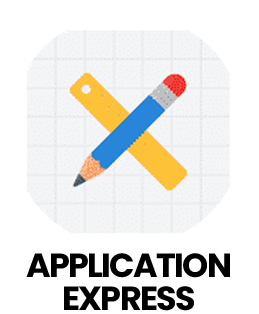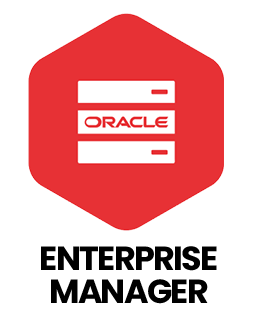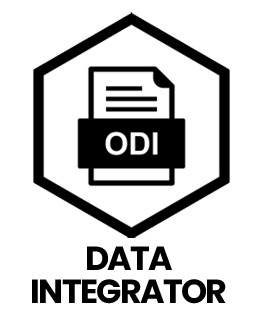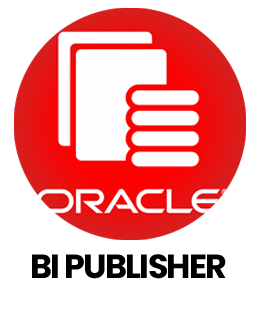Oracle certifications are tangible, industry-recognised credentials that can help you succeed in your IT career and provide measurable benefits to your employer. Oracle certifications are a reliable validation of training and experience that can accelerate your professional development, improve your productivity, and enhance your credibility. In fact, 97% of Global Fortune 500 companies use Oracle software. Well-trained, highly-skilled database professionals who can manage critical systems are in high demand. Enroll Now with us ACTE Oracle DBA Classroom & Online Training Course.
Yes, it is right time to start because…. Managing huge data of the company is not a joke. DBA has to maintaining huge level of security, the privacy of each database so it is a good choice to start your career in Database Administration and one should prepare for Oracle DBA certification. As Increasing Demand for Oracle DBAs.
`
Meanwhile Oracle DBA will definitely be in action as long as the databases are there. However, we need to keep improving our self and updated with the latest technologies. For example as of now, traditional DBA work is minimal as the databases itself has convenient monitoring and alert systems. All The work, which DBA used to do manually, are now automated with this solution.
Yes, It is good career option in Oracle DBA is the most important asset for any Sector and this makes the job of DBA quite demanding. The internet and e-commerce is expanding rapidly and require handling of large database, hence there is a high scope and more career options for database administrations. Moreover, there are lot of enhancements are doing day by day to accomplish to organizing the database.
We are happy and proud to say that we have strong relationship with over 700+ small, mid-sized and MNCs. Many of these companies have openings for Oracle DBA analyst. Moreover, we have a very active placement cell that provides 100% placement assistance to our students. The cell also contributes by training students in mock interviews and discussions even after the course completion.
The data base that we are writing are similar to other data bases but there where not been an huge difference between Oracle dba & Sql DBA, where Oracle DBAs Work on Windows, Unix or Linux platforms. SQL DBAs Work on Windows platform, however they may possess knowledge of UNIX or Linux OS. Complexity increases with Oracle since you are required to know much more things to get the job done. As for SQL, it is mostly GUI interaction.
In oracle there where been different types of courses are been involved and there is no fixed option for the best Oracle certification, however, the Oracle Database 12c is an excellent option. In this certification, pluggable databases bring a new level of efficiency and ease to database consolidation, while a wealth of other new features address performance and availability.
Exactly No, You won't be doing any programming in the sense of developing client applications, moreover, the DBA and programming are been fully different where if you're strictly a DBA, but you should know how they work and speak genuine, polite (generally speaking). Depending on the role, you might find yourself writing or tuning queries, writing scripts to automate tasks or consulting on application design.
Our courseware is designed to give a hands-on approach to the students in Oracle DBA. The course is made up of theoretical classes that teach the basics of each module followed by high-intensity practical sessions reflecting the current challenges and needs of the industry that will demand the students’ time and commitment.
Oracle DBA Is Very Fast
Yes. It is worth your time and money if you want to head towards the database administration direction. You can add Oracle in your kitty if you like, but I am sure it will definitely build your resume in many ways.
Our world is full of data and is dependent on data as well. Every day, every minute, tons of data where being generated from various sources. In today’s world, each company needs to rely on DBA managers and data scientists who can make proper use of data to drive the company’s growth.
Well, it depends on what you are targeting to learn. If it is DBA & other databases then it will take 3 hours of study for 2–3 months and you will be good to go. But there are so many packages and so many special functionalities that you might still need some more time to focus on them. But I guess that will happen with time. However, if you are thinking of learning Oracle applications, then it is a different ball game. Those are extremely specific on corresponding domains like Human Resources, Supply Chain, and Manufacturing etc…….
Oracle is a worldwide leader and Oracle database is most popular globally. Thus, jobs are available more than other RDBMS DBA jobs. Most of the companies are using Oracle database on various platforms. Means chances of Oracle DBA jobs are more at any type of industry like telecom, finance, banking, etc. This is might be one of the valid reason for choosing Oracle DBA career.
Why Learn Oracle
How Oracle’s Autonomous Database Makes the DBA Job Easier
- The Autonomous Database runs in the Oracle Cloud.
- The Oracle Cloud Infrastructure is based on the Oracle Exadata platform which can deliver unmatched performance and high availability to ensure 99.995 uptime access for your workloads.
- The Oracle Cloudalso delivers higher flexibility than commodity clouds with instant elasticity where compute and storage resources can be scaled independently while the application is running, with no downtime. There is no manual sizing of database workloads.
- With Oracle Cloud, there is no limit on how much diagnostics and audit data can be stored for your database workloads. You can collect and analyze as much diagnostics data as you want to solve a problem and get answers without any impact to your database performance.
The autonomous database uses AI and adaptive machine learning to automatically self-patch, self-tune, detect and resolve anomalies, and optimizes indexes much more quickly and efficiently than manual hands-on processing.
Focus Areas for Successful DBAs
Whether or not you are a System DBA, this technology can have a major impact on your productivity and your career.
For example, by adopting the Autonomous Database, system DBAs can now expand their responsibilities to cover more high value areas or specialize in areas with higher business value including:
- Spend more time on data model enhancements
- Focus more on the database architecture
- Spend more time with developers and line of business
- Focus on any other task that can benefit from a proactive approach e.g. plan capacity, eliminate systemic issues
You can see there are compelling reasons for a system DBA to consider the Autonomous Database.
What about other DBA roles?
- Arguably, the application DBA has the most complex responsibilities. Let's now look at the application DBA requirements.
- When applications run on the Autonomous Database, they automatically benefit from better performance, higher availability and resilience as well as better security. This enables DBAs to effectively direct resources when unknown issues arise, requiring rapid troubleshooting.
- This typically involves the assembly of large war rooms where architects, administrators and developers from across the IT landscape show up with their data to troubleshoot the issue.
- But in practice, people are there to disprove that the problem is in their respective areas. Oracle now provides Oracle Management Cloudto provide DBAs with complete visibility into their application environments to help avoid war room finger pointing and other challenges associated with multi-tier troubleshooting. Check out this great blogpost by Tim Mooney where he explains the benefits Oracle Management Cloud.
Oracle and the Future
Although the basis for calculating database management systems percentage of business is highly contested, there isn’t anyone contesting Oracle as having the largest percentage of the current database management system business. Don’t confuse this with cloud business or other technology platform- those are two different things. One such ranking, clearly shows the scope of what Oracle has accomplished. There are many who whisper of Oracle’s demise and some who state it openly, but we don’t think it’s as simple as live or die.
Changing Role of the Oracle DBA in 2020
- In the late 20th century, shops had dozens of Oracle DBA staff and important tasks were still overlooked because DBAs said ?It?s not my job,? or ?I don?t have time.? Changing technology mandated that the 21st century DBA would have more overall responsibility for the whole operation of their Oracle database.
- So, what did this mean to the Oracle DBA of the early 21st century? Clearly, less time was spent installing and maintaining multiple copies of Oracle, and this freed-up time for the DBA to pursue more advanced tasks such as SQL tuning and database performance optimization.But the sad reality of server consolidation was that thousands of mediocre Oracle DBAs lost their jobs to this trend. The best DBAs continued to find work, but DBAs who were used for the repetitive tasks of installing upgrades on hundreds of small servers were displaced .
- The surviving Oracle DBAs found that they were relieved of the tedium of applying patches to multiple servers, constantly re-allocating server resources with Oracle Grid control, and constantly monitoring and tuning multiple systems. The DBA job role became far more demanding, and many companies started to view the DBA as a technical management position, encompassing far more responsibility than the traditional DBA.
- Consequently, many computer professionals and Oracle DBAs were faced with a new requirement to have degrees in both computer science and business administration. The business administration allowed them to understand the working of internal systems and helped them to design the corporate database.
The automation of many of the Oracle DBA functions led to the Oracle professional accepting responsibility for a whole new set of duties:
- Data modeling and Oracle database design
- Data interface protocols
- Managing data security
- Managing development projects
- Predicting future Oracle trends for hardware usage and user load







































